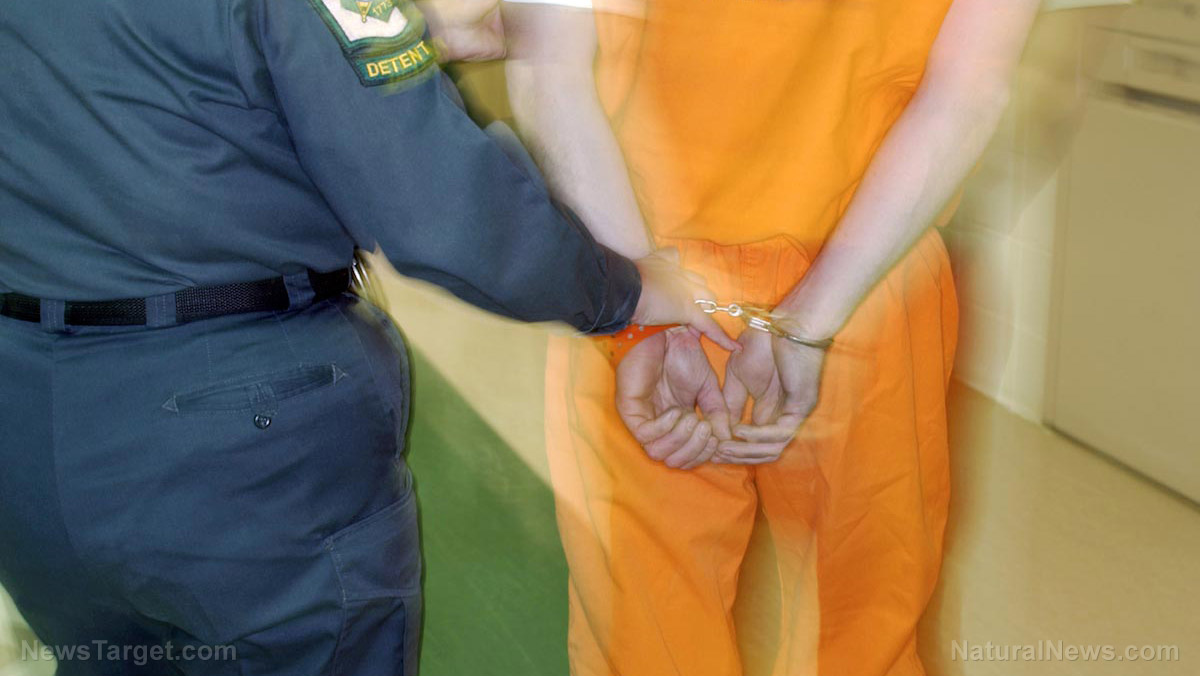
According to a sweeping two-year Associated Press (AP) investigation on a former southern slave plantation that is now the country's largest maximum-security prison, prisoner labor has been tied to hundreds of millions of dollars worth of agricultural products sold on the open market.
Coming out of Louisiana State Penitentiary are unmarked trucks packed with cattle. AP report indicated that prisoners here are sentenced to hard labor and forced to work, for pennies an hour or sometimes nothing at all. After rumbling down a country road to an auction house, the cows are bought by a local rancher. The news outlet followed another 600 miles to a Texas slaughterhouse that feeds into the supply chains of giants like McDonald's, Walmart and Cargill.
The damning report further indicated that if the vulnerable prisoners refuse to work, it may jeopardize their chances to get parole. Worse, they are punished by being sent to solitary confinement. The probe also found that they get excluded from protections guaranteed to almost all other full-time workers, even when they are seriously injured or killed on the job.
Meanwhile, the end products that the jail men produce go to supply chains to leading groceries and supermarkets, including Kroger, Target, Aldi and Whole Foods. Some goods are even exported to countries that have had products blocked from entering the U.S. for using forced or prison labor.
AP argued that the companies purchasing this supply from prisons are violating their policies against the use of forced free labor. But it may be completely legal.
Enshrined in the Constitution by the 13th Amendment, slavery and involuntary servitude are banned – except as punishment for a crime. That clause is currently being challenged on the federal level, and efforts to remove similar language from state constitutions are expected to reach the ballot in about a dozen states this year.
Moreover, AP analyzed data from correctional facilities nationwide which traced nearly $200 million worth of sales of farmed goods and livestock to businesses over the past six years. The news organization believes this is a conservative figure that does not include tens of millions more in sales to state and government entities. Much of the data provided was incomplete, though it was clear that the biggest revenues came from sprawling operations in the South and leasing out prisoners to companies.
To some critics, labor inside the penitentiary may be continued but the incarcerated people should at least be paid fairly and treated humanely and all work should be voluntary. "They are largely uncompensated, they are being forced to work, and it's unsafe. They also aren't learning skills that will help them when they are released," law professor Andrea Armstrong said. "It raises the question of why we are still forcing people to work in the fields." (Related: The corporations that are so concerned about slavery and social justice still rely on forced slave labor to make their profits.)
Prison laborers routinely hurt, abused and even killed
AP perused through thousands of documents and spoke with over 80 incarcerated people, including men and women currently and formerly convicted of crimes that ranged from murder to shoplifting, writing bad checks, theft or other illegal acts linked to drug use.
They found people who were hurt or maimed on the job as well as women who were sexually harassed or abused by their civilian supervisors or correctional officers. The AP probers examined dozens of cases that managed to make their way into the court system although it’s often nearly impossible for them to file cases.
AP also spoke to family members of prisoners who were killed, including Frank Dwayne Ellington. He was sentenced to life in prison with the possibility of parole after stealing a man’s wallet at gunpoint. In 2017, Ellington, then 33, was cleaning a machine near the chicken "kill line" in Ashland, Alabama at Koch Foods when its whirling teeth caught his arm and sucked him inside, crushing his skull. He died instantly.
Koch Foods at first argued Ellington wasn't technically an employee and later said his family should be barred from filing for wrongful death because the company had paid his funeral expenses. The case eventually was settled under undisclosed terms after a year-long legal battle. The Occupational Safety and Health Administration fined the company $19,500, saying workers had not been given proper training and that its machines had inadequate safety guards.
"It's somebody's child, it's somebody's dad, it's somebody's uncle, it's somebody's family," said Alishia Powell-Clark, the victim's mother. "Yes, they did wrong, but they are paying for it."
Visit Enslaved.news for more on modern-day slavery.
Watch the video below that talks about the history of forced labor and human rights abuses in China.
This video is from the GalacticStorm channel on Brighteon.com.
More related stories:
At least 7 Apple suppliers are using slave labor in China, report reveals,
WE'RE ALL SLAVES: China's Uyghur forced labor slaves are making the face masks worn by Americans.
Sources include:
Please contact us for more information.













